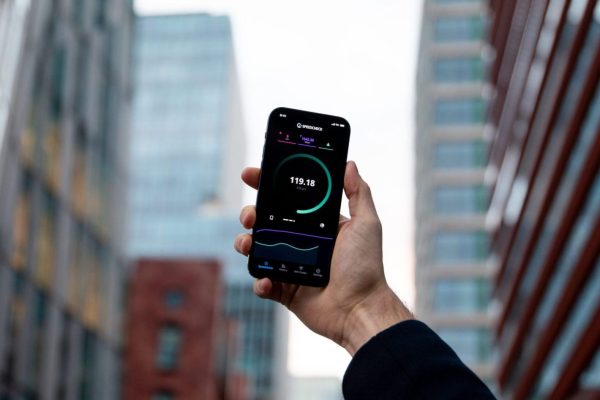
The Network of The Future
The mobile internet has come a long way in the last 10 years. From being barely able to download an email attachment to streaming HD films on the go, the mobile internet landscape is almost unrecognizable from the one that existed back in 2007.
With the arrival of 4G, speeds that we had previously only been privy to at home, have become accessible while on the move, and this has made a lot of us question, “do we actually need home broadband anymore?”
It has always been the dream, hasn’t it? One internet connection that you carry around with you, and connect all your devices to, depending on where you are. While you are at home, your laptops, games consoles, and tablets all connect to the net via your phone or mobile hotspot.
When you are out of the house, your tablet or laptop will use the same connection that it uses at home. What a wonderfully simple solution to your online needs, eh? Well, not quite. There are many reasons why these current mobile packages are not robust enough for a total broadband solution, but they generally fall into one of three categories:
Coverage
If you happen to live in the middle of a built-up city, you have a roughly 50/50 chance of this particular area not applying to you. If you live in a slightly more rural setting or happen to be unlucky in your placement within your city, getting a 4G signal at home may be a little troublesome.
Without a 4G signal, you can kiss goodbye to reliable streaming for a household with more than 1 person in it. Even when you do have a 4G signal, it is not always guaranteed that you will have this signal constantly. If you rarely use the internet at home, then perhaps this won’t be much of an issue for you, but if you enjoy streaming services such as Netflix, or if you use Skype or online gaming regularly, mobile internet is far from the perfect solution for you.

Data Caps
OK, it is 1 am, you are 3 episodes into the latest drama from Netflix, and you think that you might just squeeze in another hour before bed. Well, you better check your data usage first! Unless you manage to find a mobile internet provider that allows for unlimited tethering (you’ll find their shop next to the one that sells magic unicorns), then you are going to have to really keep an eye on how much data you are using.
With caps anywhere from 2GB to 30GB, the range in packages is quite large, but even the largest data allowance would have trouble accommodating a Netflix binge. Even regular Youtube viewers would have trouble keeping the data usage down, so again, mobile internet solutions can only really be recommended for someone who rarely uses online services.
Price
I’m sure some of you will be thinking that consolidating your internet connections will be cheaper in the long run. This may be true if you don’t use the internet very much, but again, anyone who streams a reasonable amount of video, and even audio, could well find themselves paying extra, as they exceed their data allowance each month.
And it’s not like the higher packages that allow for bigger data caps are cheap either. Just walk into your local mobile phone shop and ask how much their largest mobile broadband package is, and prepare yourself to be shocked. 20GB might be perfectly fine for your phone, but when you consider some HD films can use as much as 5GB of data when downloaded, it doesn’t give you much wiggle room when it comes to enjoying the fruits of the online streaming world.
But won’t 5G Be The Answer?
It might be. That is the only answer available right now, as we simply don’t know. One thing for certain though, is that 5G won’t be around for another three or four years anyway, and when it comes to having a meaningful rollout, we could be looking to around 2025. Just look at how long it took for 4G to get popular, and even that is still unusable in most areas. While 5G is supposed to put an end to the need for home broadband, at least for the foreseeable future, that is just a pipe dream. When you consider we have had 4G available since 2010, and you also consider how many black spots you encounter when you are on your travels, it is hard to take the idea that 5G will have you covered in the next 10 years as anything other than laughable. If you don’t mind holding off until around 2030, you might be OK.
With fiber broadband plans falling in price all the time, speeds increasing, and availability continuing to expand, your first port of call when considering a broadband package should still be fiber. If you can’t get fiber in your area, a VDSL or ADSL package can still support the needs of many consumers out there.
Unfortunately, for now, mobile broadband does not tick enough boxes to be considered a true alternative to physical connections. A couple of decades down the line, I’m sure we’ll be revisiting this story and perhaps changing tack, but for now, fast speeds, low latency, and reliability only have one home, and that home is made of fiber.
